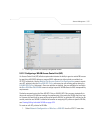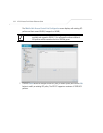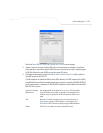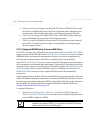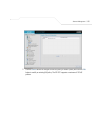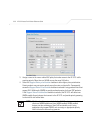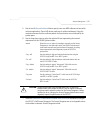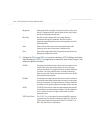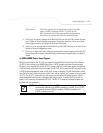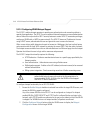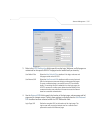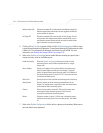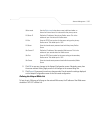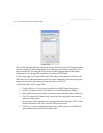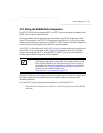
AP-5131 Access Point Product Reference Guide
5-38
8. Configure the CW min and CW max (contention windows), AIFSN (Arbitrary Inter-Frame
Space Number) and TXOPs Time (opportunity to transmit) for each Access Category. Their
values are explained as follows.
Background Backgrounds traffic is typically of a low priority (file transfers, print
jobs ect.). Background traffic typically does not have strict latency
(arrival) and throughput requirements.
Best Effort Best Effort traffic includes traffic from legacy devices or
applications lacking QoS capabilities. Best Effort traffic is
negatively impacted by data transfers with long delays as well as
multimedia traffic.
Video Video traffic includes music streaming and application traffic
requiring priority over all other types of network traffic.
Voice Voice traffic includes VoIP traffic and typically receives priority over
Background and Best Effort traffic.
CW Min The contention window minimum value is the least amount of time
the MU waits before transmitting when there is no other data
traffic on the network. The longer the interval, the lesser likelihood
of collision. This value should be set to a smaller increment for
higher priority traffic. Reduce the value when traffic on the WLAN
is anticipated as being smaller.
CW Max The contention window maximum value is the maximum amount of
time the MU waits before transmitting when there is no other data
traffic on the network. The longer the interval, the lesser likelihood
of collision, but the greater propensity for longer transmit periods.
AIFSN The AIFSN is the minimum interframe space between data packets
transmitted for the selected Access Category. This value should be
set to a smaller increment for higher priority traffic to reduce
packet delay time.
TXOPs Time 32usec The TXOPs Time is the interval the transmitting MU is assigned
for transmitting. The default for Background traffic is 0. The same
TXOPs values should be used for either the AP-5131’s 802.11a or
802.11b/g radio, there is no difference.




